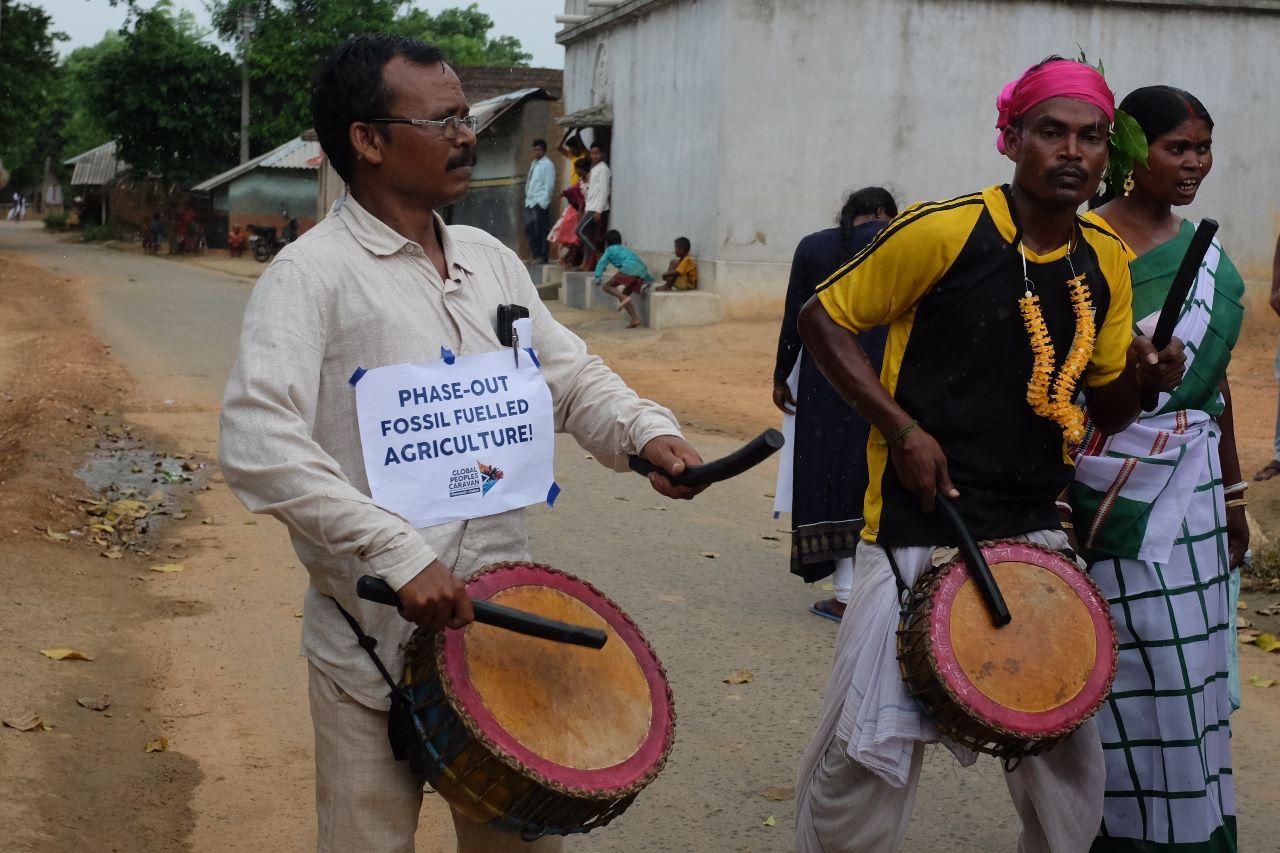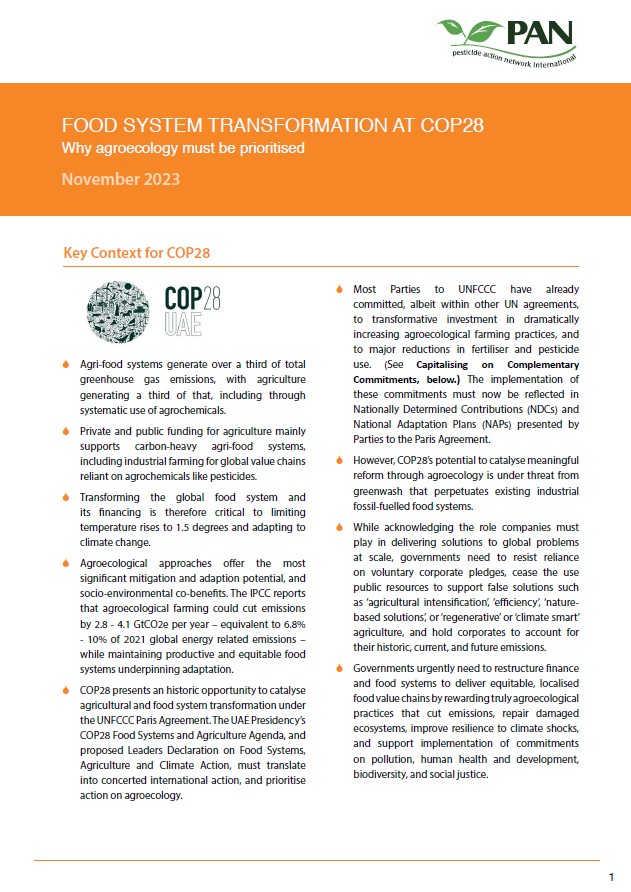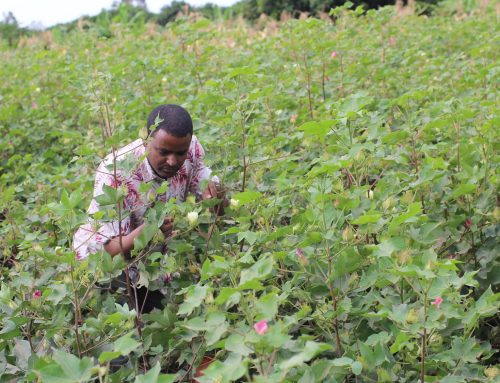Transforming agriculture and food systems – which generate over a third of global emissions – is essential to limit global warming in line with the goals of the Paris Agreement. Weaning the world off industrial agriculture reliant on fossil-fuelled chemical inputs like pesticides and fertilisers is fundamental to that. The UN’s COP28 climate conference in Dubai in December presents a key moment of opportunity.
The COP28 Presidency’s Food Systems and Agriculture Agenda encourages governments to align national food and agriculture reforms with revised Nationally Determined Contributions (NDCs) and National Adaptation Plan (NAP) mandated under the Paris Agreement by 2025. Mainstreaming the adoption of agroecology globally is critical to ensure reforms are fit for purpose.

Kheria Sabar indigenous peoples join the Global People’s Caravan in West Bengal, India. Photo: Paschim Banga Kheria Sabar Kalyan & Keystone Foundation
The IPCC reports that adopting agroecological farming practices could reduce emissions by 2.8 – 4.1 GtCO2e per year – equivalent to 6.8% – 10% of 2021 global energy related emissions. It also advises that agroecology will help maintain productive and equitable food systems underpinning adaptation to temperature rises already locked in. Most Paris Agreement signatories have already committed to significantly increase agroecological farming practices, to major reductions in fertiliser and pesticide use and pollution, and to phase out Highly Hazardous Pesticides (HHPs) in agriculture. While these commitments have been made in complementary UN agreements, including the Kunming-Montreal Global Biodiversity Framework, and the new Global Framework on Chemicals, the social, biodiversity, and climate mitigation and adaptation co-benefits of such reforms are undeniable.
PAN UK joins the PAN International network in urging Parties to the Paris Agreement to incorporate their delivery of these commitments into their national climate action plans under the UNFCC.






